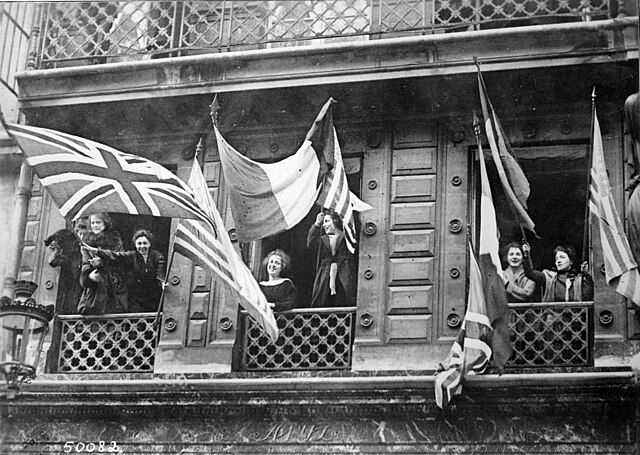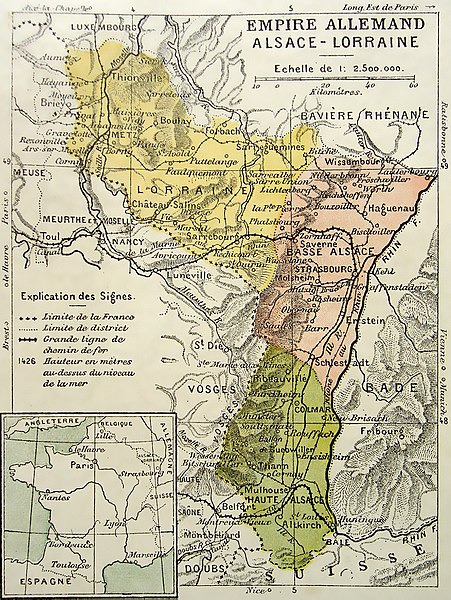Luxembourgers are an ethnic group native to their nation state of Luxembourg, where they make up around half of the population. They share the culture of Luxembourg and speak Luxembourgish, a West Germanic language.
Luxembourgers celebrating the liberation of their country at the end of World War I in 1918.
Germans and Luxembourgers in Brazil (1875)
Luxembourg City in 1913
Luxembourgish children (evacuees) in Surrey, England (1942), saying grace before a meal
Luxembourg, officially the Grand Duchy of Luxembourg, is a small landlocked country in Western Europe. It is bordered by Belgium to the west and north, Germany to the east, and France to the south. Its capital and most populous city, Luxembourg, is one of the four institutional seats of the European Union and the seat of several EU institutions, notably the Court of Justice of the European Union, the highest judicial authority. Luxembourg's culture, people, and languages are highly intertwined with its French and German neighbours; while Luxembourgish is the only national language of the Luxembourgish people and of the Grand Duchy of Luxembourg, French is the only language for legislation, and all three – Luxembourgish, German and French – are used for administrative matters in the country.
Text page from the Codex Aureus of Echternach, an important surviving codex, was produced in the Abbey of Echternach in the 11th century.
Charles IV, the 14th-century Holy Roman Emperor and King of Bohemia from the House of Luxembourg
Frontier with Alsace-Lorraine from 1871 to 1918
The Hall of the Chamber of Deputies, the meeting place of the Luxembourgish national legislature, the Chamber of Deputies, in Luxembourg City








